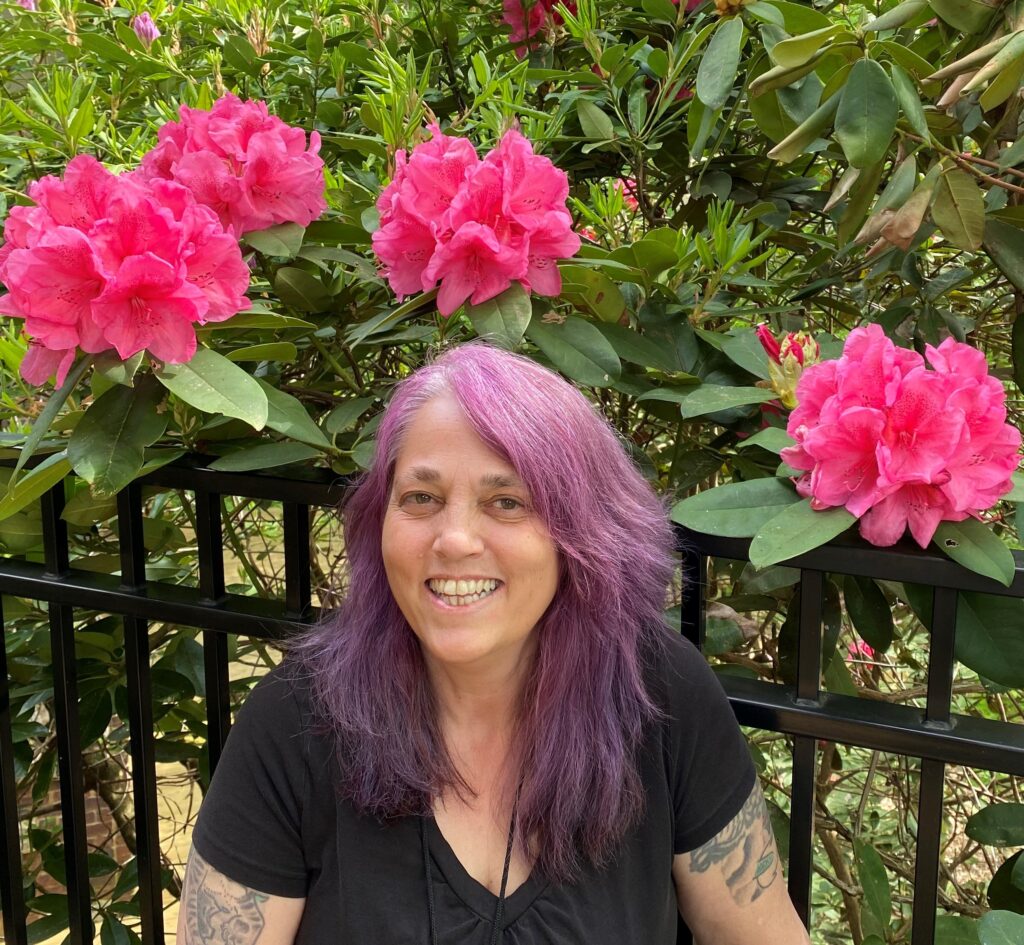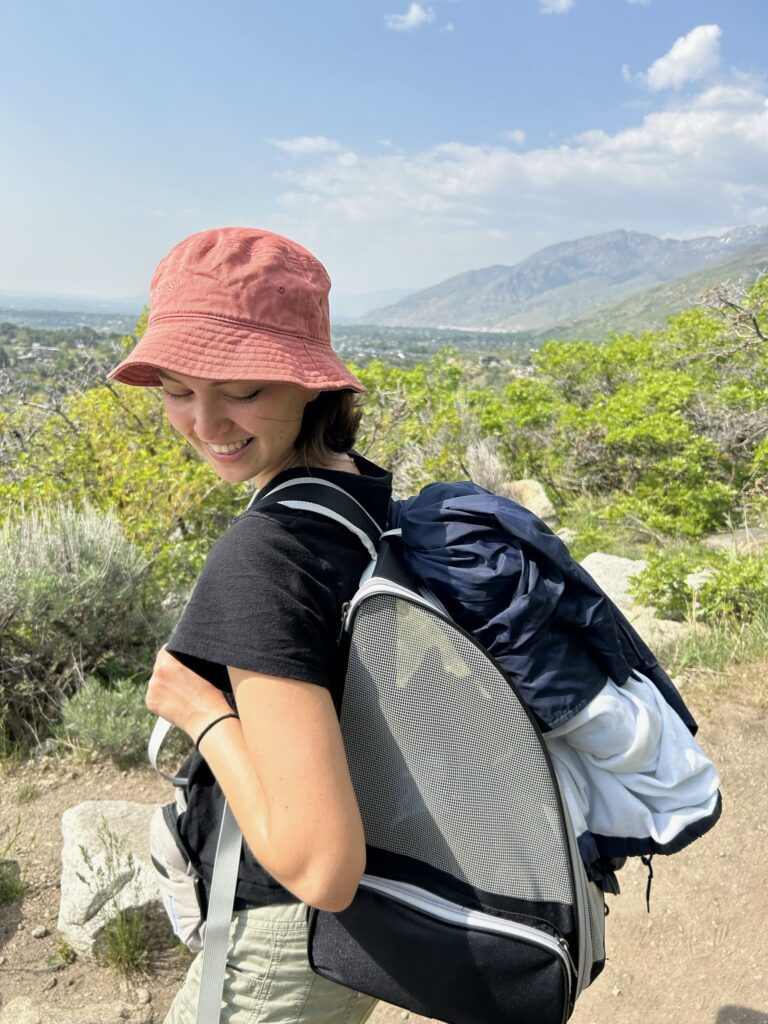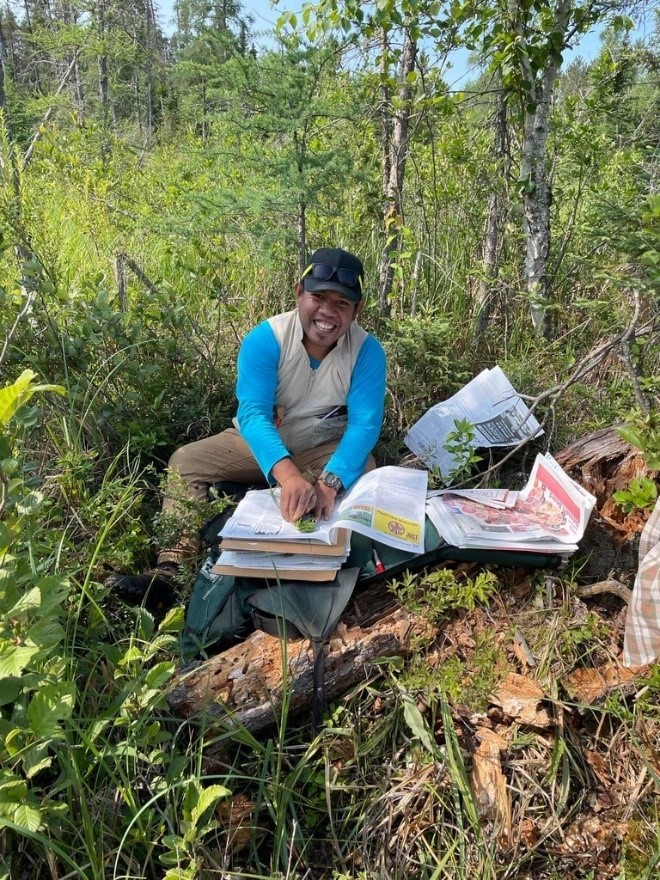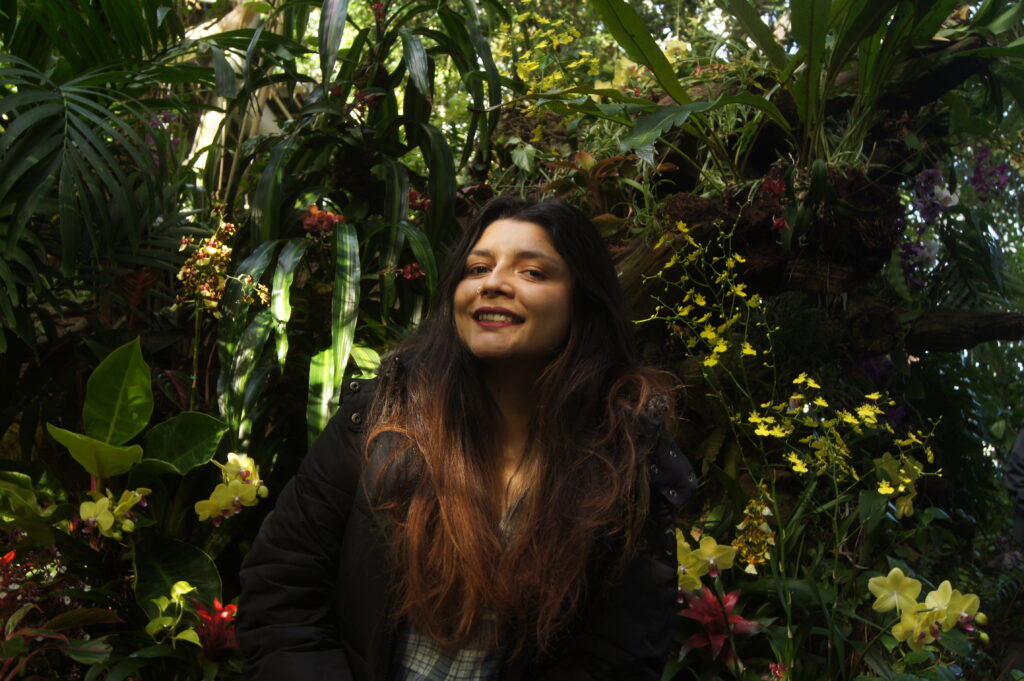Juliana Medeiros, PhD – Plant Biologist
My research focuses on plant anatomical and physiological acclimation and adaptations to the abiotic environment. I am interested in how phenotypic and genetic variation in plant form and function interact with variation in climate over space and time to drive ecological patterns and the evolution of plant diversity. I focus primarily on plant hydraulic traits, including xylem water transport, leaf gas exchange and the integration of leaf and xylem function.

Dylann Nakaji-Conley
As the research specialist in Juliana Medeiros’ Lab, my work centers on how phenotypic and genetic variation in plant species interact with environmental factors to drive ecological patterns and the evolution of plant diversity. My current research investigates the role of anthocyanins, carotenoids, and co-pigmentation in rhododendron leaves and flowers, focusing on their relationship to environmental conditions and stress. I plan to pursue a PhD in evolutionary ecology, with a specific interest in how plants acclimate to new environments and how their adaptive capacities will meet the growing challenges posed by urbanization and climate change. Through science outreach and community engagement, I hope to foster a deeper understanding of how people and the environment interact, ensuring that research is informed by and benefits the communities it seeks to serve.

Miranda Shetzer – PhD Candidate
I am a second-year PhD candidate interested in how the abiotic environment influences the physiology and distribution of Rhododendron minus, a species native to the Southeast United States. I am currently working on a species distribution model to elucidate how factors like climate, topography, soil pH, and vegetation impact where this species grows. In addition to modeling approaches, I am conducting manipulative greenhouse experiments to see whether there is trait divergence across different R. minus populations. R. minus can be found along a broad light gradient, with plants in the understory receiving far less light than plants in light gaps. Hence, one of the greenhouse experiments examines how light intensity influences growth and pigments of R. minus to infer differences in light responses across the range.

Yasper Mambrasar, MS – Research Intern
Yasper Mambrasar is a plant systematist with extensive field experience working in Indonesia. He recently completed his M.S. at University of Wisconsin-Madison and will be conducting a one-year research internship focusing on Juniperus virginiana (commonly known as Eastern Red Cedar) funded by the National Science Foundation. Yasper will also work with Dr. Juliana Medeiros to develop projects and collaborations on Rhododendron to know how the species adapts to climate.

Catalina Valderrama, MS – Research Intern
I am a biologist from Colombia, and I recently earned my master’s degree in biology from John Carroll University. I am interested in Rhododendron physiology and its relationship with global climate change. My research will be focused on understanding how temperature impacts heat tolerance and how Rhododendron species adapt to rapid environmental shifts. In addition to my own projects, I’ll be contributing to the lab’s ongoing research by conducting greenhouse experiments to explore trait plasticity in Rhododendron minus.
